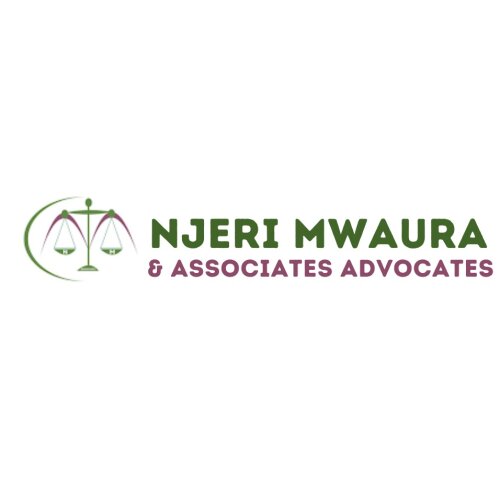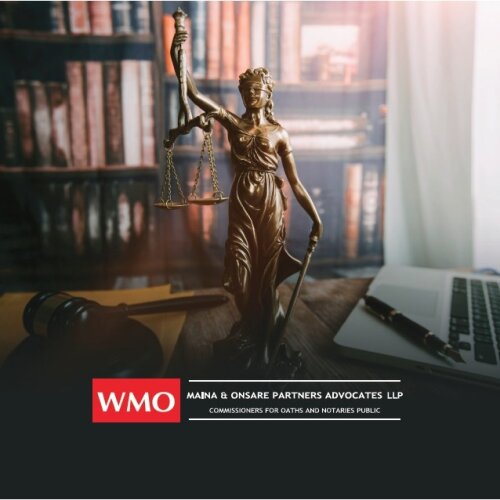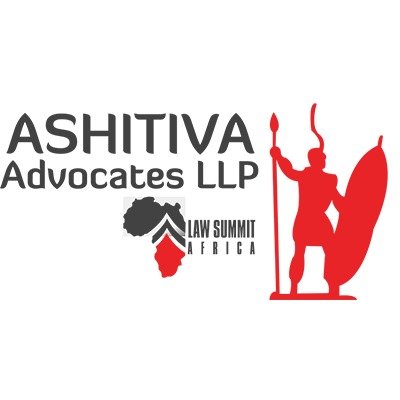Best Renewable & Alternative Energy Lawyers in Kenya
Share your needs with us, get contacted by law firms.
Free. Takes 2 min.
Or refine your search by selecting a city:
List of the best lawyers in Kenya
Legal guides written by Adroit Law LLP:
- Kenya Launches Digital Nomad Visa: A Gateway for Remote Workers
- Navigating the Payment System License Maze in Kenya
- Navigating the Complexities of Mining Licenses and Permits in Kenya: A Look into Artisanal and Large-Scale Operations
About Renewable & Alternative Energy Law in Kenya
Kenya is a leader in East Africa in adopting renewable and alternative energy solutions. The country has made significant investments in energy options such as geothermal, wind, solar, biomass, and small hydropower. This shift is vital for supporting sustainable development, reducing reliance on fossil fuels, and meeting the growing energy needs of the population. Government policies and regulatory bodies actively support new projects and investments in the sector. As such, understanding the legal framework surrounding renewable and alternative energy in Kenya is crucial for investors, developers, communities, and individuals interested in this field.
Why You May Need a Lawyer
Legal advice and representation are key in navigating the complex and highly regulated renewable and alternative energy sector. Here are some common situations where legal help may be required:
- Obtaining licenses and permits for renewable energy projects
- Drafting and reviewing Power Purchase Agreements (PPAs) and other contracts
- Land acquisition and securing land rights for energy installations
- Compliance with environmental and safety regulations
- Dispute resolution involving project stakeholders, communities, or government agencies
- Structuring investments and joint ventures in the energy sector
- Intellectual property issues relating to new energy technologies
- Regulatory compliance with energy authorities and reporting obligations
- Tax planning and incentives for renewable energy projects
- Community benefit sharing and stakeholder engagement
Local Laws Overview
The legal environment for renewable and alternative energy in Kenya is shaped by several key laws and policies:
- Energy Act, 2019 - The principal legislation that governs the energy sector, including licensing, tariffs, safety measures, and enforcement provisions for renewable energy projects.
- Kenya Vision 2030 - A national policy blueprint emphasizing the importance of green energy for sustainable growth and outlining targets for renewable energy capacity.
- Feed-in-Tariff (FiT) Policy - Offers incentives and guaranteed pricing for energy producers who generate electricity from renewable sources such as solar, wind, small hydro, and biogas.
- Environmental Management and Coordination Act (EMCA) - Regulates environmental impact assessments (EIA) and ensures energy projects comply with environmental standards.
- Land Laws - Land Act, Land Registration Act, and Community Land Act govern acquisition, registration, and utilization of land for energy projects.
- Kenya Power and Lighting Company (KPLC) Regulations - Any grid connection or sale of electricity typically involves compliance with KPLC requirements.
- County-level Regulations - Renewable energy projects may need to comply with additional county policies and by-laws.
Frequently Asked Questions
What types of renewable and alternative energy are common in Kenya?
Kenya utilizes geothermal, wind, solar, biomass, and small hydropower for electricity generation. Geothermal and wind energy are particularly significant contributors to the national grid.
Who regulates renewable energy projects in Kenya?
The main regulatory body is the Energy and Petroleum Regulatory Authority (EPRA). Environmental aspects are overseen by the National Environment Management Authority (NEMA).
Do I need a license to operate a renewable energy project?
Yes. Any generation, transmission, or sale of electricity in Kenya requires specific licenses from EPRA. You may also need approvals from other relevant authorities.
What are Power Purchase Agreements (PPAs), and why are they important?
PPAs are contracts between energy producers and off-takers, typically Kenya Power, specifying terms such as pricing, duration, and delivery of electricity. They provide revenue certainty for project developers.
Are there incentives for investing in renewable energy?
Yes. Incentives include feed-in tariffs, tax holidays, duty exemptions on equipment imports, and support for grant funding under certain government programs.
How do land rights affect renewable energy projects?
Proper land acquisition and use rights are vital. Projects must comply with land laws to avoid disputes and ensure legal operation. Some projects, especially wind and solar, require negotiating with communities and county governments.
What environmental approvals are necessary?
An Environmental Impact Assessment (EIA) license from NEMA is generally required. The process involves public participation and can take several months.
How are disputes in renewable energy projects resolved?
Disputes may be resolved through negotiation, mediation, arbitration, or litigation in Kenyan courts, depending on the contract and nature of the disagreement.
Can foreigners invest in Kenya’s renewable energy sector?
Yes. Kenya is open to foreign investment in renewable energy. However, compliance with investment laws, land ownership restrictions, and sector-specific requirements is necessary.
What role do counties play in renewable energy development?
Counties manage land and sometimes issue additional permits. Community engagement is crucial since counties may levy fees or require benefit-sharing agreements for local projects.
Additional Resources
Here are some recommended resources and organizations that can assist with renewable and alternative energy issues in Kenya:
- Energy and Petroleum Regulatory Authority (EPRA)
- National Environment Management Authority (NEMA)
- Ministry of Energy and Petroleum
- Kenya Electricity Generating Company (KenGen)
- Kenya Power and Lighting Company (KPLC)
- Renewable Energy Associations (such as Kenya Renewable Energy Association - KEREA)
- County Government Offices
- International development organizations (World Bank, IFC, African Development Bank)
Next Steps
If you are considering participation in Kenya’s renewable or alternative energy sector, the first step is understanding your specific goals and the legal landscape. Here is a suggested approach:
- Identify the type and scope of your project or investment
- Consult a lawyer or law firm with expertise in energy projects and Kenyan regulations
- Gather information about local, county, and national requirements
- Engage relevant authorities early to understand licensing and permits needed
- Ensure proper documentation for land rights and environmental approvals
- Negotiate contracts, such as PPAs, with the support of legal counsel
- Maintain compliance with ongoing reporting requirements
- Plan for dispute resolution and stakeholder engagement
A legal advisor can help navigate processes, mitigate risks, and ensure your renewable energy project aligns with Kenya’s legal and regulatory standards.
Lawzana helps you find the best lawyers and law firms in Kenya through a curated and pre-screened list of qualified legal professionals. Our platform offers rankings and detailed profiles of attorneys and law firms, allowing you to compare based on practice areas, including Renewable & Alternative Energy, experience, and client feedback.
Each profile includes a description of the firm's areas of practice, client reviews, team members and partners, year of establishment, spoken languages, office locations, contact information, social media presence, and any published articles or resources. Most firms on our platform speak English and are experienced in both local and international legal matters.
Get a quote from top-rated law firms in Kenya — quickly, securely, and without unnecessary hassle.
Disclaimer:
The information provided on this page is for general informational purposes only and does not constitute legal advice. While we strive to ensure the accuracy and relevance of the content, legal information may change over time, and interpretations of the law can vary. You should always consult with a qualified legal professional for advice specific to your situation.
We disclaim all liability for actions taken or not taken based on the content of this page. If you believe any information is incorrect or outdated, please contact us, and we will review and update it where appropriate.
Browse renewable & alternative energy law firms by city in Kenya
Refine your search by selecting a city.

















